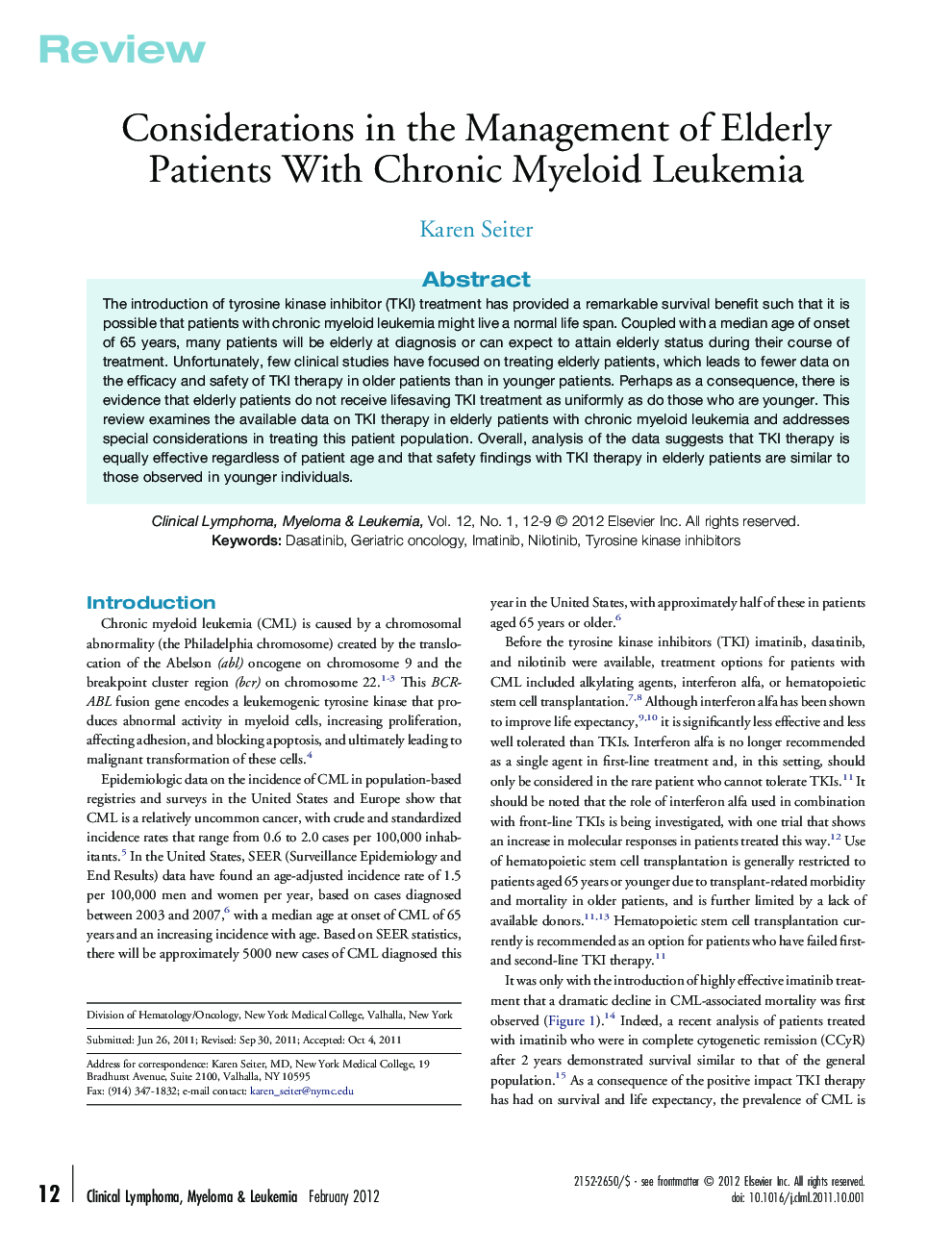| Article ID | Journal | Published Year | Pages | File Type |
|---|---|---|---|---|
| 2755133 | Clinical Lymphoma Myeloma and Leukemia | 2012 | 8 Pages |
The introduction of tyrosine kinase inhibitor (TKI) treatment has provided a remarkable survival benefit such that it is possible that patients with chronic myeloid leukemia might live a normal life span. Coupled with a median age of onset of 65 years, many patients will be elderly at diagnosis or can expect to attain elderly status during their course of treatment. Unfortunately, few clinical studies have focused on treating elderly patients, which leads to fewer data on the efficacy and safety of TKI therapy in older patients than in younger patients. Perhaps as a consequence, there is evidence that elderly patients do not receive lifesaving TKI treatment as uniformly as do those who are younger. This review examines the available data on TKI therapy in elderly patients with chronic myeloid leukemia and addresses special considerations in treating this patient population. Overall, analysis of the data suggests that TKI therapy is equally effective regardless of patient age and that safety findings with TKI therapy in elderly patients are similar to those observed in younger individuals.
